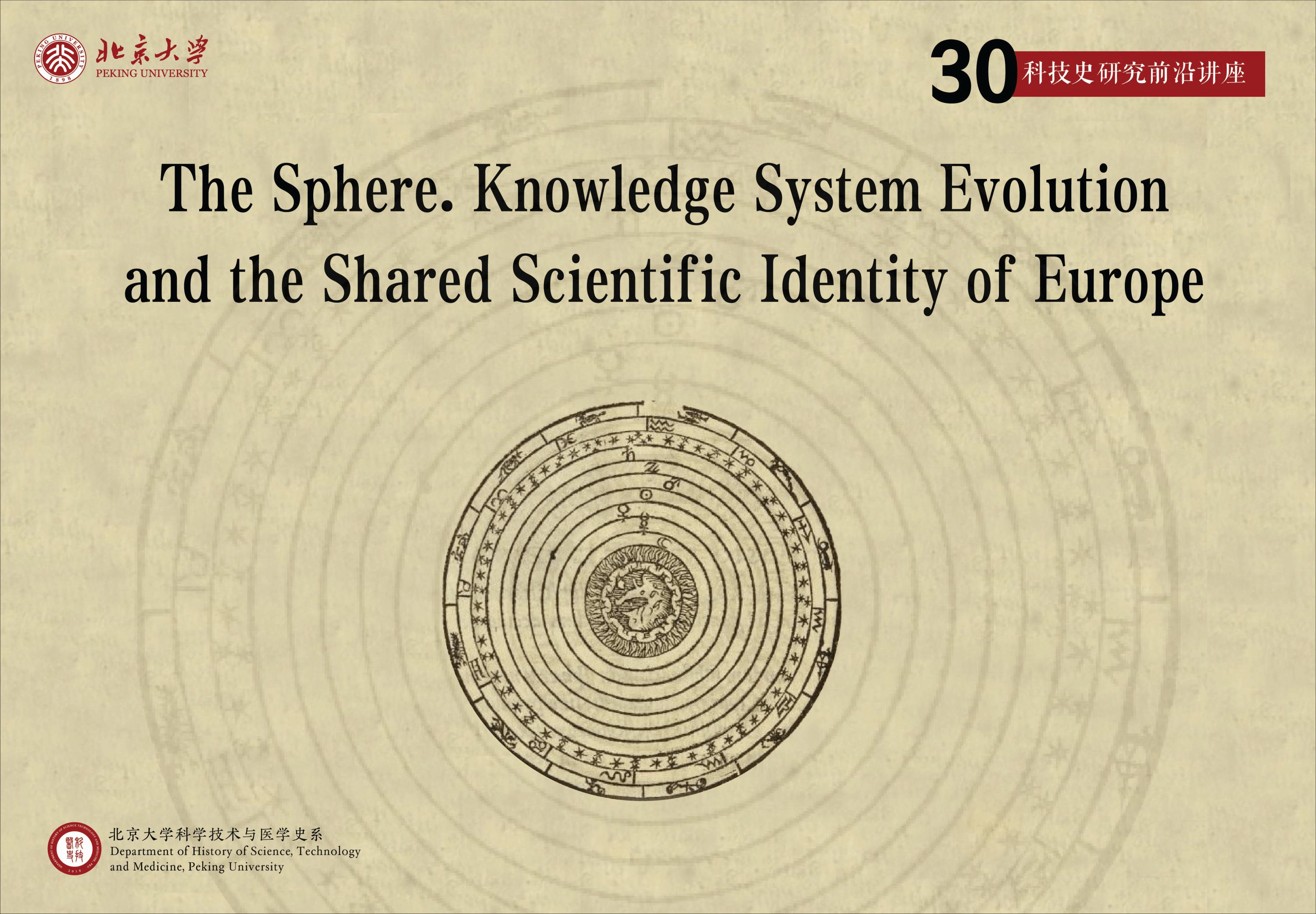
本讲摘要
Scientific knowledge as well as all kinds knowledge is in continuous transformation. One of the dominant aspects of this transformation in recent centuries can be defined as a process of homogenization. In this presentation the historical roots of this peculiar evolutionary aspect o knowledge will be shown with reference to European scientific knowledge. Therefore, late medieval and early modern historical sources will be analyzed which, from a semantic point of view, cover those fields of knowledge that, according to the categories of historical actors, belonged to the quadrivium. Emphasis will be placed on treatises on astronomy.
包括科学知识在内的所有知识都在持续转变之中。近几个世纪以来,这种转变的一个重要特性可定义为同质化。本讲以欧洲科学知识为例,分析中世纪末和现代早期的历史资料,进而阐释知识的这一演变特性的历史渊源。从语义学的角度来看,这些历史资料所涵盖的知识领域属于历史行动者类目中的四艺(中世纪的四门学科,即算术、几何、天文、音乐)。本讲重点分析天文学论著。
Having to consider a very large number of historical sources, the research is developed in the field of Digital Humanities and Computational History. During the presentation therefore, in addition to providing an overview of the data extracted from the sources, the following technologies and applications will also be shown: the Knowledge Graph utilized for the data repository, the method of data analysis through the application of network theory and the use of multi-layer networks, as well as the latest applications of machine learning and Explainable Artificial Intelligence, developed with a view to scale-up the research.
该研究利用数字人文学和计算历史学的技术,分析了大量的历史资料。因此,本讲座除了综述从历史资料中提炼出的数据外,还将展示以下技术及应用在研究中的运用情况:用于数据存储的知识图谱,基于网络理论应用和多层网络系统的数据分析方法,以及用于扩大研究规模的机器学习技术和可解释人工智能技术最新实践应用。
Speaker: Matteo Valleriani,Max Planck Institute for the History of Science, Berlin
Technische Universität Berlin,Tel Aviv University
主讲人:Matteo Valleriani,柏林马克斯-普朗克科学史研究所研究员,柏林工业大学名誉教授,特拉维夫大学的特聘教授
Host: Meng Zhang, Department of History of Science, Technology and Medicine, Peking University
主持人;张蒙,北京大学科学技术与医学史系助理教授
Discussant: Daniele Macuglia, Department of History of Science, Technology and Medicine, Peking University
与谈人:马大年(Daniele Macuglia),北京大学科学技术与医学史系助理教授
主讲人
Matteo Valleriani
Matteo Valleriani is research group leader at the Department I at the Max Planck Institute for the History of Science in Berlin, honorary professor at the Technische Universität of Berlin, and professor by Special Appointment at the University of Tel Aviv. He investigates the relation between diffusion processes of scientific, practical, and technological knowledge and their economic and political preconditions. His research focuses on the Hellenistic period, the late Middle Ages, and the early modern period.
Matteo Valleriani,柏林马克斯-普朗克科学史研究所第一研究部研究组组长,柏林工业大学名誉教授,特拉维夫大学的特聘教授,主要研究希腊化时期、中世纪晚期和现代早期科学性、实用性、技术性知识的扩散过程与其经济、政治前提之间的关系。
Among his principal research endeavors, he leads the project “The Sphere: Knowledge System Evolution and the Shared Scientific Identity of Europe” (https://sphaera.mpiwg-berlin.mpg.de), which investigates the formation and evolution of a shared scientific identity in Europe between the thirteenth and seventeenth centuries.
Matteo Valleriani开展了多个研究项目,其牵头的“《球体》:知识体系演变与欧洲科学共性"(https://sphaera.mpiwg-berlin.mpg.de)是其中主要项目之一,研究了13世纪至17世纪欧洲科学共性的形成和演变。
In the context of this project, Matteo Valleriani implemented the development of Machine Learning technology and of the physics of complex system in the humanities. The project is also part of the investigations led by Matteo Valleriani in the context of BIFOLD (https://bifold.berlin).
在这一研究项目中,Matteo Valleriani促进了机器学习技术和复杂系统物理学与人文学科的融合发展。该项目也是Matteo Valleriani在BIFOLD(https://bifold.berlin)背景下牵头开展的研究项目的一部分。